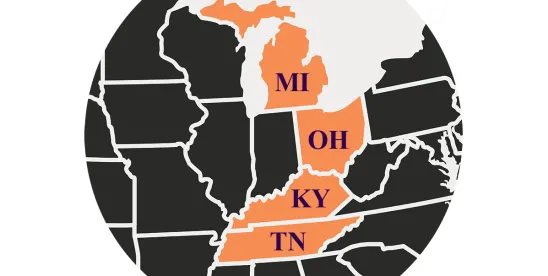On August 17, 2021, the Sixth Circuit Court of Appeals became the first federal appellate court to hold that where nonresident plaintiffs opt into a putative collective action under the FLSA, a court may not exercise specific personal jurisdiction over claims unrelated to the defendant’s conduct in the forum state. Canaday v. The Anthem Companies, Inc. (Case No. 20-5947) (6th Cir). The next day, the Eighth Circuit reached the same conclusion in a separate case. Vallone v. CJS Solutions Group, LLC, d/b/a HCI Group (Case No. 20-2874) (8th Cir).
We previously blogged about how district courts were divided on this question. Now, with two appellate court rulings, the weight of authority leans in favor of employers.
The Issue
At issue in both cases was whether a federal court can exercise personal jurisdiction over the claims of FLSA opt-in plaintiffs who reside and worked for the defendant outside the state where the action is pending. Often, plaintiffs will file a proposed collective action in the state where he or she resides or worked for the defendant, which is many times not the defendant’s home state. In this scenario, the court has personal jurisdiction over the named plaintiff’s claims because the claims arise in the forum state. But does such jurisdiction extend to the claims of nonresident employees seeking to opt-in to the action?
The Opinions
Both circuits, analyzing similar fact patterns, answered “no.”
Critical to this rationale is the distinction between general and specific personal jurisdiction. If either claim were filed in the defendant-employer’s home state—either the state of incorporation or the principal place of business—district courts could exercise general personal jurisdiction over the defendant, enabling the court to hear any claim against the employer, even if such claims lack connection to the forum state. But such broad jurisdiction is absent where, as in Canaday and Vallone, the named plaintiff files suit in a state in which the defendant-employer is not at home. In such circumstances, the court can only assert specific personal jurisdiction over claims that arise as a result of the defendant’s in-state activities.
Although the nonresidents in Canaday and Vallone had claims based upon the defendant’s conduct in their respective states, such claims, the circuit courts concluded, lacked a connection to the forum state. In so holding, both appellate courts cited the Supreme Court’s 2017 Bristol Myers Squibb Co. v. Superior Court of Ca. decision, wherein the Supreme Court explained that California state courts could not exercise specific personal jurisdiction over product liability claims of nonresidents where the claims did not relate to the defendant’s activity in California.
Notably, the Sixth Circuit rejected the plaintiff’s argument that personal jurisdiction should exist for nonresident plaintiffs in the same regard as it would in a Rule 23 action, which most courts agree only require that the named plaintiff establish personal jurisdiction. The Sixth Circuit disagreed with this comparison because Rule 23 class members are represented by the named plaintiff and have to affirmatively opt-out of a proposed class. In contrast, putative class members in an FLSA action have to affirmatively opt-in, and when they do so, they become “party plaintiffs” by operation of the statute.
Takeaways
The Canaday and Vallone opinions are a significant victory for employers defending putative nationwide FLSA collective actions, particularly in the Sixth and Eighth Circuits. If an employer is sued outside its home state, the Canaday and Vallone opinions should help a defendant-employer limit any proposed collective action to individuals who worked for the defendant in the forum state.





 />i
/>i
